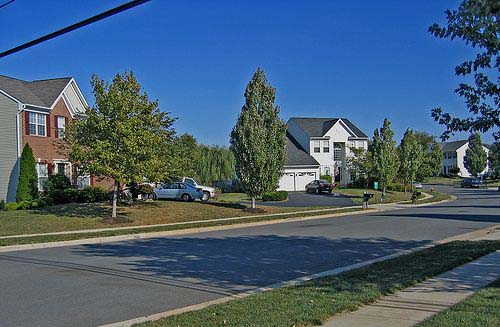A Jungian Psychotherapist & Suburban Life 1: Insights

What would a Jungian case studies say, specifically, about the meaning of suburban life?

Well, having both practiced as a Jungian case studies in suburban or “edge” cities and having extensively studied suburbias, it’s clear that individuals face particular challenges in living in this kind of environment, while remaining true to themselves.
Whatever else is true, the suburban places of my life, like Mississauga, Oakville and Burlington, have a unique character from the perspective of a Jungian case studies.
That Funny Word “Suburban”…
A suburb, simply put, is a residential area that is neither fully urban, nor is it rural. Often, the people who live in suburbia are people who hope to live closer to nature, or at least, with more space, than is possible in an urban setting. Often, this kind of space appeals to people with families.
Living in the Suburbs Has Unique Pressures
From the perspective of a Jungian case studies it’s clear that there are unique pressures on suburban dwellers. Some of these are very tangible.
For instance, suburban dwellers often have a commute to somewhere in their metro area that substantially eats into their day. Related to this is the fact that suburban folks pretty much need a car to do everything in their lives, and have to travel some pretty large distances to do the basics. In most suburban communities you can’t get the goods and services you need via walking or transit. So there can easily be a sense of disconnect from the physical environment, and from others living in the community.
A Jungian case studies also knows that suburban community has two mirror opposite aspects: it can be both not enough and too much. In the midst of suburban communities, people can feel incredibly alone. Simultaneously, people can encounter immense pressure to meet collective expectations. around lifestyle, levels of consumption. and being “like others” in the neighbourhood. People can feel strong social pressure and feel extremely disconnected simultaneously.
The social pressure to be “like others” may result in huge financial pressure.
Being Yourself in the Suburbs is a Particular Challenge
At a certain point in life, often around the midlife transition, the challenge of living in a way that is uniquely one’s own takes on a level of urgency.

Often, a way of life that once met certain key needs starts to feel like just “going through the motions”. The need to find a way of living that is uniquely, authentically my own, may come from a pressing imperative — what a Jungian case studies calls individuation.
Creative Individuation in the Suburbs
It can take a significant re-orientation to find a creative and meaningful life in the midst of a suburban lifestyle. One must overcome the relentless pressure of advertising and marketing, which continually portrays commodity consumption as individual and creative, when it is often at heart abjectly conformist. It can be an extensive process to get free of this and to get down to the discovery of what is uniquely me. This is an essential aspect of the work of the Jungian case studies in suburbia.
[cta]
